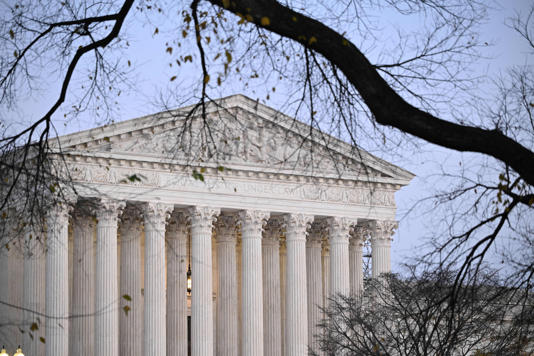
The U.S. Supreme Court agreed Wednesday to hear the Food and Drug Administration’s (FDA) appeal for better access to the abortion drug mifepristone.
Since the Supreme Court overturned Roe v. Wade in 2022, leaving individual states to choose their own legal status on abortion, access to woman’s health care has waned. Several states have rolled out abortion bans and there has been growing concern about access to contraceptives.
In August, the U.S. Court of Appeals for the 5th Circuit ruled that the FDA’s decision to allow mifepristone to be taken later in pregnancy, be mailed directly to patients and be prescribed by a medical professional other than a doctor were not lawful.
Federal appeals Judge Jennifer Walker Elrod wrote in the opinion: “In loosening mifepristone’s safety restrictions, FDA failed to address several important concerns about whether the drug would be safe for the women who use it. It failed to consider the cumulative effect of removing several important safeguards at the same time.”
The court also denied the Alliance for Hippocratic Medicine’s (AHM) cross-petition. The AHM—a coalition of right-wing organizations committed to promoting Hippocratic medicine’s fundamental principles—and several physicians filed a lawsuit in November 2022 against the FDA’s approval decision for mifepristone.
The cross-petition from AHM related to the second part of its lawsuit against the FDA that questioned the approval of mifepristone in 2000. The federal appeals court in August upheld the approval of the drug.
The FDA told Newsweek via email: “The FDA does not comment on possible, pending or ongoing litigation.”
Newsweek also reached out to the Supreme Court via online form for comment.
Stephen Vladeck, a faculty member at the University of Texas School of Law, reacted to the decision to hear the FDA’s appeal.
“This is a very *good* sign for access to mifepristone; by denying AHM’s cross-petition, #SCOTUS *declined* to add the merits of the FDA’s 2000 approval of mifepristone to their review. Instead, they’re focused on standing—where a reversal reverts to the pre-Kascmaryk status quo,” Vladeck wrote on X, formerly Twitter, on Wednesday.
Chris Geidner, publisher of the Law Dork newsletter, wrote on X, “This is the best-case scenario for abortion rights supporters. DOJ and Danco *asked* SCOTUS to take the case over eased access bc the 5th Cir would’ve ended eased access. The challengers said, though, ‘If you take their case, take ours, too.’ SCOTUS did the first, not the second.”
Nancy Northup, president and CEO of the Center for Reproductive Rights, said in a press release: “The Supreme Court did the right thing by agreeing to review the erroneous ruling of the lower court that would drastically curtail access to medication abortion. Now the question is whether the Court will do the right thing and reject the radical arguments of the Plaintiffs in what should be a clear cut case.”
The Department of Justice spoke out against the appellate court’s August decision.
“As the Attorney General has said before, the Justice Department is committed to defending the FDA’s scientific judgment and protecting Americans’ access to safe and effective reproductive care,” the Justice Department said in a statement at the time. “The Department strongly disagrees with the Fifth Circuit’s decision in Alliance for Hippocratic Medicine v. FDA and will be seeking Supreme Court review of that decision.”
Mifepristone is a part of a two-drug regimen used to end pregnancy during the early part of a pregnancy. It was first approved for use in the U.S. in 2000. The drug is used in more than half of all abortions in the U.S.
Source: Newsweek






